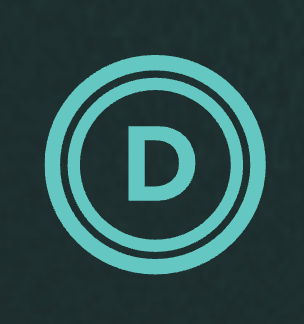Arbitrum Development Company
At Zpoken, we are a trusted Arbitrum development company excelling in DeFi and Application Layer engineering. Our expertise caters to a diverse clientele, ranging from emerging protocols to mature projects, and extends to enterprises and various financial entities such as hedge funds, family offices, and venture capitals. We deliver secure and efficient solutions on the cutting-edge Arbitrum network.

What is Arbitrum?

The Arbitrum protocol is a layer 2 scaling solution for Ethereum that aims to increase the network's capacity and speed while reducing transaction costs. It processes transactions off the main Ethereum chain (layer 1), but with the security guarantees of Ethereum. Arbitrum uses a technique called rollups to batch multiple off-chain transactions into a single transaction that is then recorded on the Ethereum blockchain. This allows for faster and more efficient processing of smart contracts and transactions. Arbitrum is compatible with Ethereum's existing tools and smart contracts, making it easy for developers to adopt
The Arbitrum protocol is a cutting-edge layer 2 scaling solution for the Ethereum network, aiming to bolster its transaction capacity significantly. It operates by processing transactions off the primary Ethereum chain, thus enabling faster and more cost-effective operations.
Learn more
By utilizing a method called Optimistic Rollups, Arbitrum can handle up to thousands of transactions per second, in contrast to Ethereum's 15-30. This is accomplished by bundling numerous off-chain transactions into a single batch that gets verified on Ethereum's layer 1. Arbitrum assumes transactions are initially valid to avoid the computational overhead of Ethereum's layer 1, only running computations via a fraud-proof mechanism when a transaction is challenged. This approach ensures the same level of security as Ethereum while improving transaction speeds dramatically. Moreover, Arbitrum is designed to be fully compatible with Ethereum's tools and smart contracts, allowing developers to migrate and deploy their applications without extensive changes seamlessly. This ease of integration combined with a significant performance increase makes Arbitrum a powerful tool for developers looking to scale applications while benefiting from Ethereum's robust decentralized security model.
Arbitrum Key Features
Optimistic Rollups
Arbitrum uses Optimistic Rollups to execute and record transactions off the main Ethereum chain, bundling multiple transactions into a single one. This reduces the load on the Ethereum network and allows for higher throughput.
Fraud Proofs
In case of a dispute about a transaction, Arbitrum relies on fraud proofs. Validators can challenge a transaction by submitting a fraud proof, which triggers a computation check to verify the transaction’s validity.
Ethereum Compatibility
Arbitrum is designed to be fully compatible with Ethereum’s existing infrastructure. Developers can deploy Ethereum smart contracts on Arbitrum without significant modifications, allowing for easy adoption and integration.
Decentralized Security
Even though transactions are processed off-chain, Arbitrum maintains the decentralized security model of Ethereum. It benefits from the underlying security of Ethereum's layer 1 because the rollup transactions are ultimately settled on the Ethereum blockchain.
Arbitrum Blockchain Development Services
We are an Arbitrum technology solutions provider, offering engineering services in the development of decentralized applications that harness the speed, scalability, and security of the Arbitrum network.
- Decentralized Applications
- NFT
- Web3 Infrastructure
Our cutting-edge blockchain development таservices for every stage of your product from ideation and hypothesis validation to engineering and successful mainnet deployment. Core Enginnering
Custom dApp development on Arbitrum provides tailored blockchain solutions that are fast, secure, and cost-effective. Reduce transaction costs and improve user experiences with our expertise in Arbitrum's layer 2 technology
An NFT marketplace on Arbitrum offers a streamlined platform for trading digital assets with minimal fees. Built on Arbitrum's layer 2, it guarantees efficient, secure transactions for all users
Our crypto wallet app development on Arbitrum delivers rapid transactions, lower fees, and strong security. Experience a seamless digital economy with wallets optimized for Arbitrum's scalability
Using a decentralized oracle on Arbitrum provides accurate, real-time data feeds with low fees. Boost your blockchain app's security, performance, and trustworthiness in the Web3 ecosystem
Our Arbitrum development flow
Validation
- Ideation and brainstorming
- Research papers
- Hypothesis tests and validation
Architecture
- Project architecture
- Technical Roadmap
- Specifications and requirements
Token engineering & Mathematical model
- Token definition
- Mathematical modelling
- Compliance framework
Development & Implementation
- UX/UI PoC
- Delivery of MVP / 1st release
- Continuous iteration and development
- Tests and key metrics measurements
Launch & Scale
- Team augmentation & hiring
- Audit processes and public documentation
- Delivery of V1.0
- Mainnet deployments and production environment setup
Arbitrum smart contract sample
Check our Solidity smart contract sample developed for Arbitrum network.
// SPDX-License-Identifier: MIT
pragma solidity ^0.8.0;
import "@openzeppelin/contracts/token/ERC20/ERC20.sol";
contract MyToken is ERC20 {
constructor(string memory name, string memory symbol) ERC20(name, symbol) {
_mint(msg.sender, 1000 * 10**decimals());
}
}
Arbitrum tech stack
Solidity
Solidity is a high-level, statically-typed programming language designed for developing smart contracts that run on the Ethereum Virtual Machine (EVM). As the primary language for Ethereum blockchain development, it enables the creation of complex contracts for decentralized finance, token creation, and other blockchain-based applications. Solidity’s syntax is similar to that of JavaScript and it supports inheritance, libraries, and complex user-defined types, making it accessible to developers with a background in modern..... +
Vyper
Vyper is a contract-oriented, pythonic programming language for writing Ethereum smart contracts. It prioritizes simplicity and security, with a syntax resembling Python, and is designed to reduce risks and increase the readability and auditability of smart contracts. Vyper can also be used for the Arbitrum network. Vyper is an alternative Ethereum smart contract language to Solidity, designed for simplicity ..... +
Projects we build
Project description iLend is a decentralized finance protocol developed on the Injective network. It offers the ability to engage in lending and borrowing activities in a decentralized, transparent, and efficient manner. The protocol leverages Injective Protocol’s ability to offer fast, secure, and EVM-compatible DeFi transactions across multiple blockchain ecosystems. Project features 1. Basic borrow and…
Project description Deepwaters is the fusion of traditional finance and blockchain technology into a hybridarchitecture, leveraging proven concepts from both. Deepwaters aims to bring maturity to DeFi and enable systems that power the next generation of financial applications. Zpoken built Vault and lending contracts for DeepWaters, this solutions help to accumulate liquidity that powers trading…
Project description Dexilon is the first DEX that is run on a limit order book powered by the native blockchain. Democratically managed by the community in a trustless and verifiable way from the world’s leading brands. Core features making Dexilon unique and easy for users onboarding: Zpoken developed The development process for Dexilon exchange, a trailblazing…
FAQ
Why Developers choose Arbitrum chain?
Arbitrum Chain is capturing the attention of developers seeking an efficient, scalable, and Ethereum-compatible blockchain solution. As a Layer 2 scaling option, it offers the perfect blend of reduced gas fees, high transaction speed, and seamless Ethereum integration, making it a top choice for building sophisticated, cost-effective dapps. With Arbitrum, developers can effortlessly migrate existing Ethereum applications, enjoy enhanced performance, and maintain robust security. This platform is an ideal choice for those looking to innovate within the Ethereum ecosystem while overcoming its scalability challenges.
Why users need ETH to use the Arbitrum network?
ETH is the currency used to pay gas fees on Arbitrum, and all Arbitrum transactions are powered by ETH. You can bridge ETH (and other tokens) from Ethereum to Arbitrum through Arbitrum's bridge.
Do I need to pay a tip or priority fee for my Arbitrum transactions?
Since transactions are processed in the order that the Sequencer receives them, no priority fee is necessary for Arbitrum transactions; if a transaction does include a priority fee, it will be refunded to the transaction's origin address at the end of the execution.
What happens if I send my funds to an exchange that doesn't support Arbitrum?
If you send the funds and the receiving wallet/exchange doesn't support the Arbitrum network you are sending funds through, there is unfortunately nothing that we can do to recover your funds. You would need to contact the wallet/exchange support and see if they can do anything to help you retrieve the funds.
How long do arbitrum transactions take?
After you start the transfer, the message that sends your L1 subgraph to L2 must propagate through the Arbitrum bridge. This takes approximately 20 minutes (the bridge waits for the mainnet block containing the transaction to be "safe" from potential chain reorgs)

